Ecotourism, a blend of travel and environmental responsibility, is reshaping how we explore the world, and SIXT.VN is here to guide you through it. It’s not just about seeing beautiful places; it’s about preserving them while contributing to local communities, offering a sustainable travel approach. Dive into the world of ecotourism facts and discover how to travel responsibly with SIXT.VN, embracing sustainable travel, conservation efforts, and responsible tourism.
1. Is Ecotourism Experiencing a Surge in Global Popularity?
Yes, ecotourism is experiencing a surge in global popularity, establishing itself as one of the fastest-growing sectors within the global economy. Valued at $295.10 billion in 2023, projections indicate a substantial rise to $761.39 billion by 2030, according to Maximize Market Research. This growth is fueled by an increasing environmental awareness and a desire among travelers for sustainable and responsible travel options. The ecotourism industry is currently experiencing a compound annual growth rate (CAGR) of 14.3% from 2021 to 2027 (Allied Market Research, 2020).
This expansion reflects a shift in traveler preferences towards experiences that not only offer adventure and relaxation but also contribute positively to the conservation of natural environments and the well-being of local communities. As a result, ecotourism is not just a trend but a significant movement towards a more sustainable and conscious way of exploring the world.
2. How Important Is Sustainable Travel to Modern Tourists?
Sustainable travel is very important to modern tourists, playing a pivotal role in their travel plans and booking behaviors. According to Booking.com’s 2023 Sustainable Travel Report, a significant 76% of global travelers are actively seeking to travel more sustainably in the coming years, marking a notable increase from 62% in 2019. This heightened interest in sustainable options reflects a growing awareness of the environmental and social impacts of tourism, as well as a desire to minimize negative footprints while traveling.
The report further indicates that 83% of global travelers consider sustainable travel to be vital, with 61% stating that the pandemic has reinforced their commitment to more sustainable travel practices in the future. This suggests that the desire to travel responsibly is not just a fleeting trend but a deeply ingrained value that is shaping the decisions of travelers worldwide.
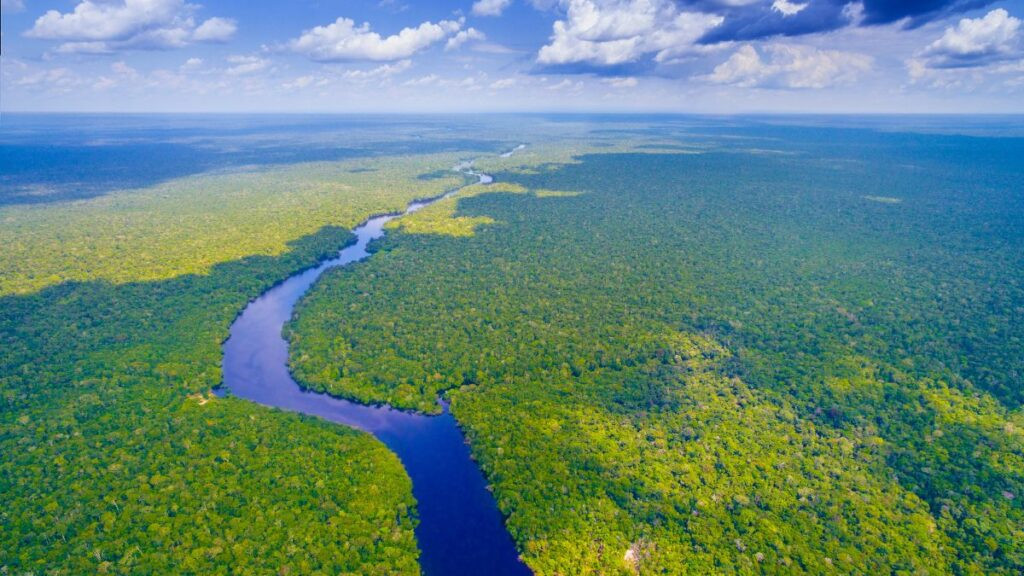 Sustainable TravelAs travelers become more conscious of their impact, they are increasingly seeking destinations and accommodations that prioritize environmental preservation and cultural authenticity. This includes options such as eco-lodges, sustainable tour operators, and experiences that support local communities and conservation efforts.
Sustainable TravelAs travelers become more conscious of their impact, they are increasingly seeking destinations and accommodations that prioritize environmental preservation and cultural authenticity. This includes options such as eco-lodges, sustainable tour operators, and experiences that support local communities and conservation efforts.
3. What Kind of Economic Impact Does Ecotourism Have on Rural Communities?
Ecotourism has a significant economic impact on rural communities, playing a crucial role in boosting local economies and providing a foundation for the protection of communities and the biodiversity of natural resources. It can contribute up to 10% of a country’s GDP.
In 2019, the travel and tourism sector accounted for 330 million jobs globally, with ecotourism being a significant contributor (World Travel & Tourism Council, 2020).
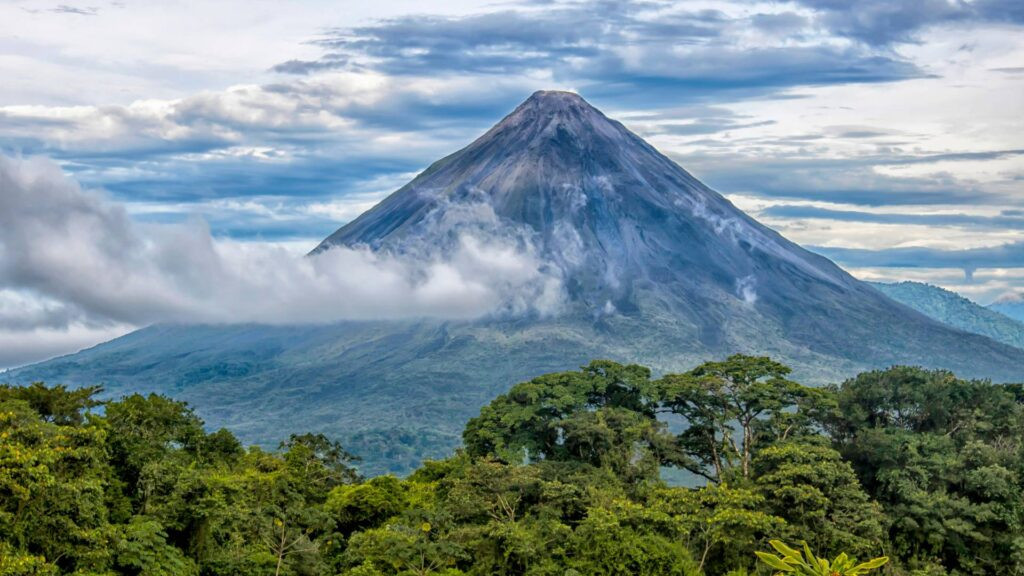 Ecotourism Impact on Rural CommunitiesCosta Rica, often regarded as a model for ecotourism, saw the industry contribute 13.5% to the country’s GDP in 2019 (World Travel & Tourism Council, 2020). The surge in ecotourism following the pandemic has led to a tourism boom, surpassing pre-pandemic arrival numbers from 2019. According to the Minister of Tourism William Rodríguez, tourism is the most important economic activity in Costa Rica, with nearly 25% of the country’s economically active population employed in tourism-related work.
Ecotourism Impact on Rural CommunitiesCosta Rica, often regarded as a model for ecotourism, saw the industry contribute 13.5% to the country’s GDP in 2019 (World Travel & Tourism Council, 2020). The surge in ecotourism following the pandemic has led to a tourism boom, surpassing pre-pandemic arrival numbers from 2019. According to the Minister of Tourism William Rodríguez, tourism is the most important economic activity in Costa Rica, with nearly 25% of the country’s economically active population employed in tourism-related work.
Ecotourism also fosters the development of local businesses, such as eco-lodges, sustainable tour operators, and handicraft shops, which generate income and employment opportunities for community members. Moreover, ecotourism revenues are often reinvested in local infrastructure, education, and healthcare, further improving the quality of life for residents.
4. How Does Indigenous Ecotourism Contribute to Biodiversity Protection?
Indigenous ecotourism is playing a vital role in protecting biodiversity by empowering indigenous communities to safeguard their unique cultural and natural resources from industrial development and exploitation.
In Panama, the establishment of semiautonomous reservations called comarcas has granted indigenous peoples greater control over their land and natural resources. The three largest comarcas – the Ngöbe-Buglé, Emberá-Wounaan, and Guna Yala comarcas – offer unique ecotourism opportunities for travelers interested in experiencing indigenous cultures and promoting sustainable travel.
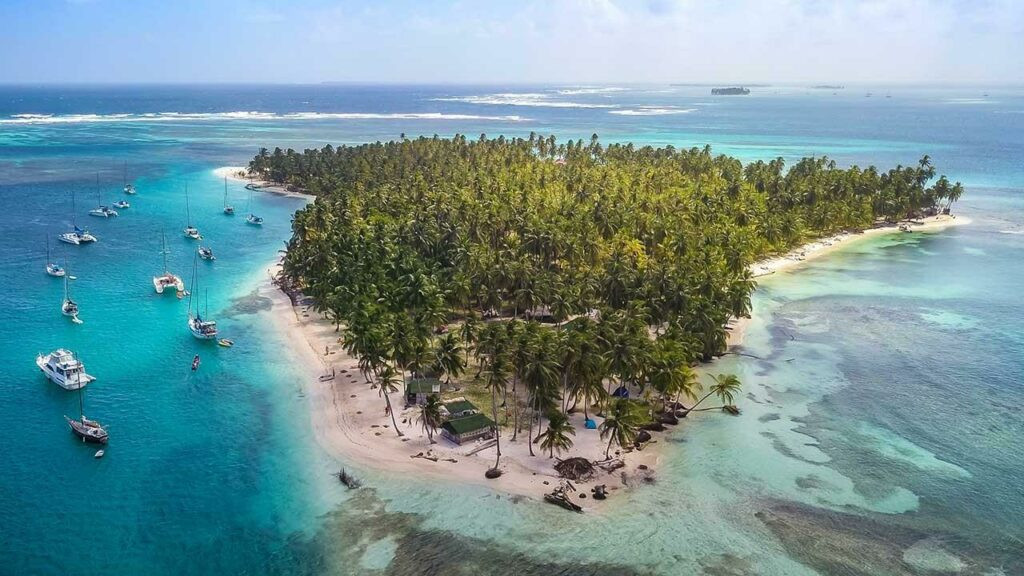 Indigenous EcotourismGuna Yala, with its 365 islands on Panama’s Caribbean coast, and Bocas Del Toro, another region with significant indigenous ecotourism potential, are poised to become premiere destinations for overseas bungalows.
Indigenous EcotourismGuna Yala, with its 365 islands on Panama’s Caribbean coast, and Bocas Del Toro, another region with significant indigenous ecotourism potential, are poised to become premiere destinations for overseas bungalows.
By engaging in ecotourism, indigenous communities generate income that can be used to support conservation efforts, such as protecting forests, managing wildlife populations, and preserving traditional ecological knowledge. Indigenous-led ecotourism initiatives often prioritize sustainable practices, such as minimizing waste, conserving water, and using renewable energy sources.
5. In What Ways Does Ecotourism Support Conservation Funding?
Ecotourism provides crucial funding for conservation efforts, playing a pivotal role in supporting habitat preservation, wildlife protection, and reforestation projects around the world.
Rwanda’s Gorilla Tourism program, which charges $1,500 per person for a one-hour visit, demonstrates the potential of ecotourism to generate significant revenue for conservation. Despite its high cost, the program is often fully booked months in advance and has contributed to the increase in the gorilla population from near extinction with 254 in 1981 to over 1,000 today. According to the World Bank, a significant portion of this revenue is directly allocated to conservation efforts.
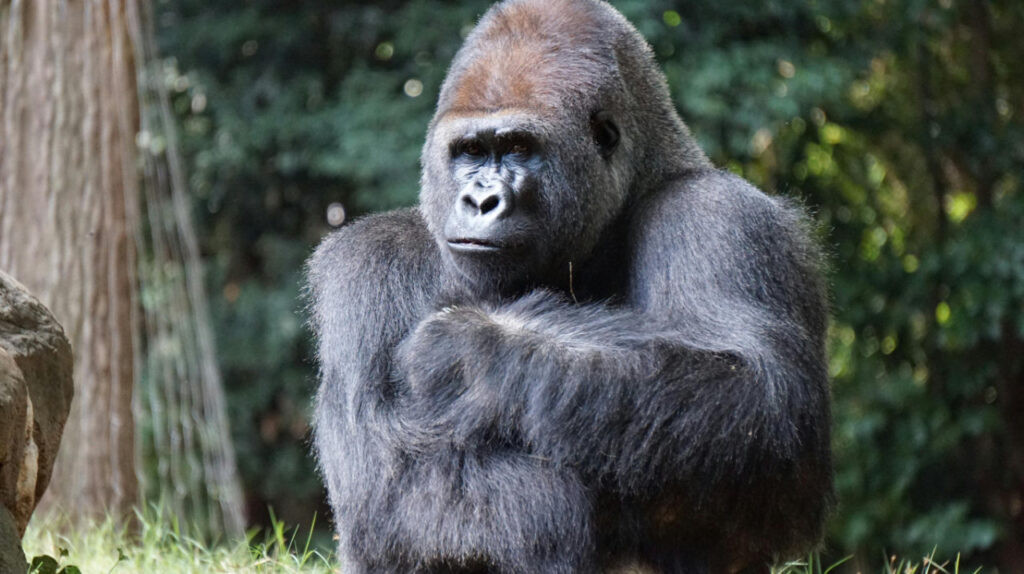 Ecotourism for ConservationIn Costa Rica, ecotourism has transformed the country’s economy, leading to a doubling of its forest cover from 26% in 1983 to over 57% today. This was largely due to ecotourism income replacing logging revenue, making Costa Rica the first tropical country to reverse deforestation, according to the World Bank.
Ecotourism for ConservationIn Costa Rica, ecotourism has transformed the country’s economy, leading to a doubling of its forest cover from 26% in 1983 to over 57% today. This was largely due to ecotourism income replacing logging revenue, making Costa Rica the first tropical country to reverse deforestation, according to the World Bank.
The African Wildlife Foundation estimates that sustainable ecotourism generates nearly $30 billion annually for wildlife conservation efforts in Africa. Well-managed ecotourism can significantly reduce poaching, as demonstrated in Nepal’s Chitwan National Park, where rhino poaching decreased by 95% over five years due to community-based ecotourism initiatives (UNESCO, 2018).
6. What Are the Top Ecotourism Trends to Watch For?
Here are some of the biggest ecotourism trends to look out for:
- Regenerative Tourism: This goes beyond sustainability to actively improve destinations through tourism, like participating in habitat restoration or local community development projects.
- Slow Travel: Travelers are opting for extended stays in fewer locations, seeking deeper cultural immersion and reducing their transit-related carbon footprint.
- Tech-Enabled Conservation: Tourists can now use apps and digital platforms to track their environmental impact, find eco-certified accommodations, and participate in citizen science projects.
- Indigenous Tourism: There’s a growing interest in experiences led by indigenous communities, focusing on traditional ecological knowledge and cultural preservation.
- Microadventures: Local and regional ecotourism experiences are gaining popularity as alternatives to long-haul travel.
These trends signify a shift towards more responsible and immersive travel experiences that prioritize environmental and cultural preservation.
7. How Is Ecotourism Affected By Carbon Footprint Awareness?
Ecotourism is greatly affected by carbon footprint awareness, as the tourism industry’s contribution to global greenhouse gas emissions is a growing concern. In 2025, it is estimated that the tourism industry will contribute 10% of the world’s GDP and about 8% of global greenhouse gas emissions, with transportation being the most significant contributor (air travel is responsible for about 40% of the tourism sector’s carbon emissions).
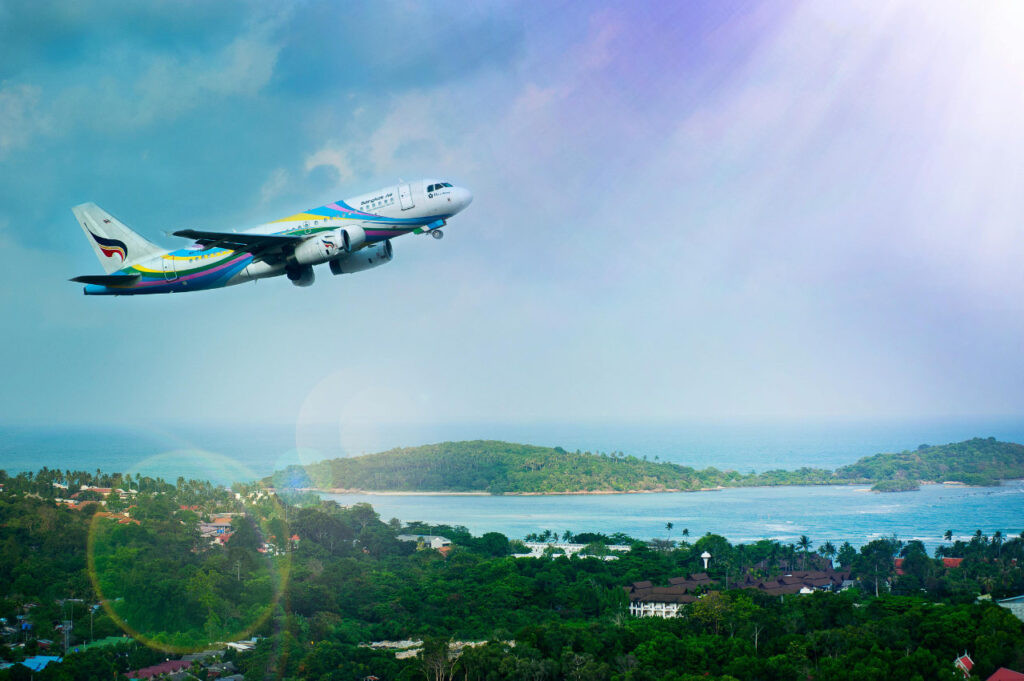 Carbon Footprint AwarenessAviation accounts for about 2.5% of global CO2 emissions, but its total climate impact is estimated to be 2-3 times higher when including non-CO2 effects like contrails and nitrogen oxides. A single long-haul flight from London to New York generates about 986 kg of CO2 per passenger – roughly equivalent to what the average person in 56 countries produces in an entire year. Cruise ships emit about 250kg of carbon dioxide per passenger per kilometer – roughly three times more than a Boeing 737 per passenger kilometer.
Carbon Footprint AwarenessAviation accounts for about 2.5% of global CO2 emissions, but its total climate impact is estimated to be 2-3 times higher when including non-CO2 effects like contrails and nitrogen oxides. A single long-haul flight from London to New York generates about 986 kg of CO2 per passenger – roughly equivalent to what the average person in 56 countries produces in an entire year. Cruise ships emit about 250kg of carbon dioxide per passenger per kilometer – roughly three times more than a Boeing 737 per passenger kilometer.
To address these concerns, over 75% of major travel brands have set carbon-neutral or carbon-negative goals to align with global sustainability efforts (Skift Research), and 30% of the world’s hotel chains are actively working to become carbon neutral.
8. Why Is Wellness Tourism The Fastest Growing Area of Ecotourism?
Wellness tourism is the fastest-growing area of ecotourism because it combines the benefits of travel with a focus on personal well-being, appealing to travelers seeking holistic and rejuvenating experiences in natural settings. The global wellness tourism market reached $651 billion in 2019 and is projected to grow at a CAGR of 20.9% through 2025, making it one of the fastest-growing tourism sectors.
 Wellness TourismWellness-focused eco-resorts in Costa Rica have seen a 90% increase in bookings over traditional resorts, with guests staying an average of 7 days longer. Forest bathing (shinrin-yoku) tourism in Japan generates approximately $4.6 billion annually, with research showing it reduces cortisol levels by 12% and blood pressure by 1.4%. Wellness sabbaticals (longer stays combining work, wellness, and eco-conscious living) have seen a 300% increase in bookings since 2019, with average stays lasting 3-4 weeks.
Wellness TourismWellness-focused eco-resorts in Costa Rica have seen a 90% increase in bookings over traditional resorts, with guests staying an average of 7 days longer. Forest bathing (shinrin-yoku) tourism in Japan generates approximately $4.6 billion annually, with research showing it reduces cortisol levels by 12% and blood pressure by 1.4%. Wellness sabbaticals (longer stays combining work, wellness, and eco-conscious living) have seen a 300% increase in bookings since 2019, with average stays lasting 3-4 weeks.
The 2024 Global Wellness Economy Monitor reveals that the wellness economy has reached a new peak of $6.3 trillion in 2023 and is projected to grow to nearly $9.0 trillion by 2028.
9. What is the Significance of Growth in Ecolodges?
The significant growth in ecolodges indicates an increasing demand for sustainable accommodations among travelers. The number of ecolodges worldwide has been growing at an annual rate of 15% since 2004.
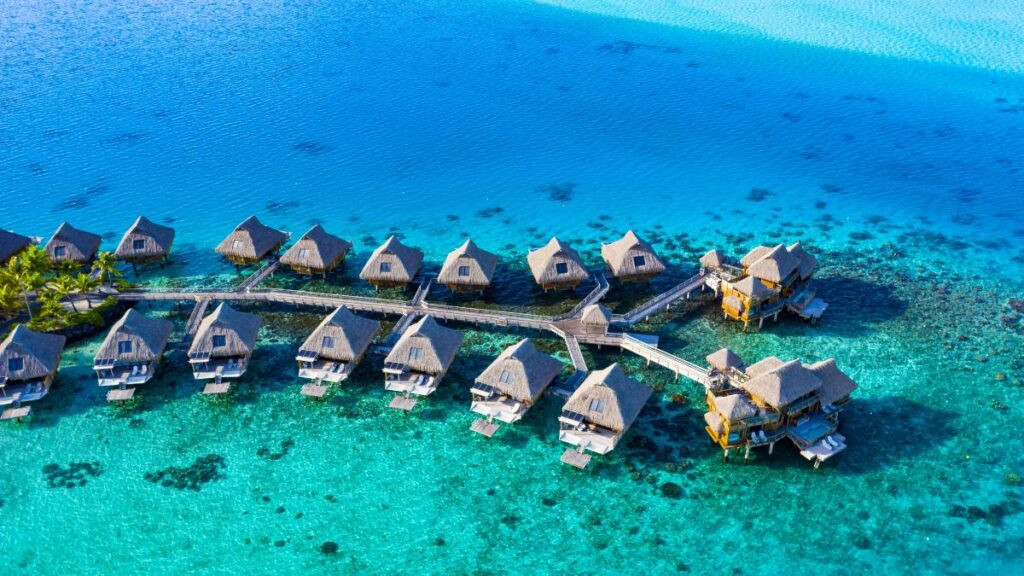 Growth in EcolodgesGlamping and eco-lodges have seen a 268% increase in bookings since 2019, with average daily rates increasing by 42% as demand outpaces supply. Costa Rica leads the Americas in ecolodge density, with over 300 certified sustainable lodges across the country. African safari ecolodges command some of the highest rates in the industry, with luxury sustainable lodges averaging $1,500-3,000 per night and booked 12-18 months in advance. Treehouse lodges have become one of the fastest-growing segments of eco-accommodation, with bookings increasing by 153% annually since 2020. Investment in eco-lodge development has grown by 89% since 2019.
Growth in EcolodgesGlamping and eco-lodges have seen a 268% increase in bookings since 2019, with average daily rates increasing by 42% as demand outpaces supply. Costa Rica leads the Americas in ecolodge density, with over 300 certified sustainable lodges across the country. African safari ecolodges command some of the highest rates in the industry, with luxury sustainable lodges averaging $1,500-3,000 per night and booked 12-18 months in advance. Treehouse lodges have become one of the fastest-growing segments of eco-accommodation, with bookings increasing by 153% annually since 2020. Investment in eco-lodge development has grown by 89% since 2019.
10. Can Ecotourism Help Combat Climate Change?
Yes, ecotourism can indeed help combat climate change through various mechanisms. Sustainable and regenerative tourism projects protect approximately 12 million hectares of forests globally, sequestering an estimated 5.9 million tons of CO2 annually, equivalent to taking 1.3 million cars off the road. Protected areas supported by ecotourism store around 15% of the world’s terrestrial carbon stock, making them crucial carbon sinks.
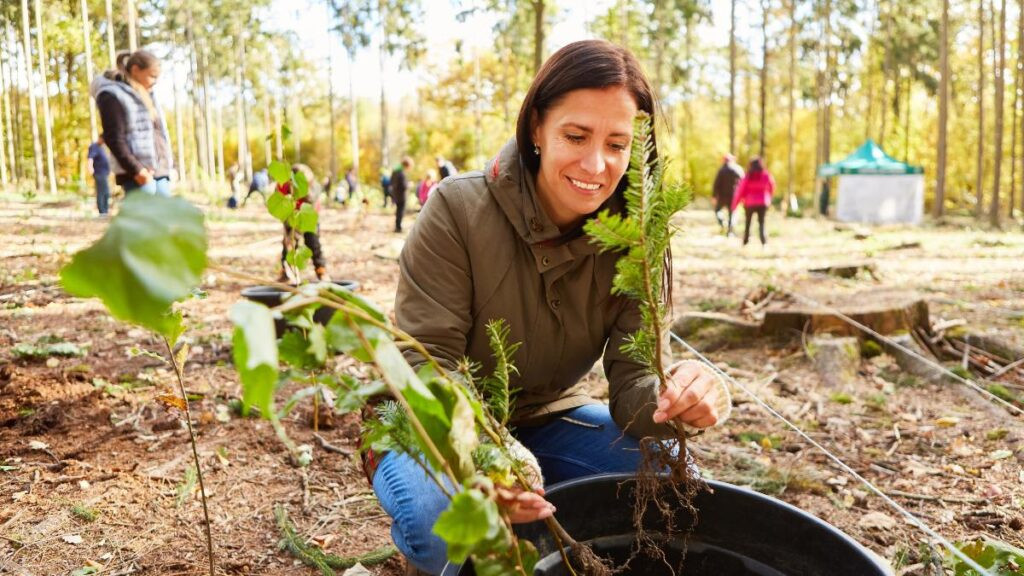 Ecotourism and Climate ChangeEcotourism promotes responsible travel practices, such as reducing carbon emissions, conserving water and energy, and minimizing waste. Ecotourism can also contribute to climate change adaptation by supporting local communities in developing climate-resilient livelihoods and infrastructure.
Ecotourism and Climate ChangeEcotourism promotes responsible travel practices, such as reducing carbon emissions, conserving water and energy, and minimizing waste. Ecotourism can also contribute to climate change adaptation by supporting local communities in developing climate-resilient livelihoods and infrastructure.
SIXT.VN: Your Gateway to Sustainable Travel in Vietnam
Planning a trip to Vietnam and want to make it eco-friendly? SIXT.VN offers a range of services to help you explore the country responsibly:
- Eco-Friendly Transportation: Choose from our selection of fuel-efficient vehicles for your travels around Vietnam. We prioritize vehicles with lower emissions to minimize your carbon footprint.
- Sustainable Accommodation Options: We partner with eco-lodges and hotels that are committed to sustainable practices, ensuring your stay supports local communities and minimizes environmental impact.
- Responsible Tour Packages: Discover Vietnam’s natural beauty with our guided tours that prioritize conservation and cultural preservation. Explore national parks, wildlife reserves, and community-based tourism initiatives.
How SIXT.VN Can Help You Plan Your Eco-Friendly Trip to Vietnam
- Personalized Itineraries: We tailor your travel plans to include sustainable activities and accommodations that align with your values.
- Local Insights: Benefit from our local expertise to discover hidden gems and authentic experiences that support local communities.
- Seamless Booking: Enjoy hassle-free booking of eco-friendly transportation, accommodations, and tours all in one place.
- 24/7 Support: Our team is available around the clock to assist you with any questions or concerns, ensuring a smooth and sustainable travel experience.
Ready to embark on an unforgettable eco-adventure in Vietnam? Contact SIXT.VN today to start planning your trip. Visit our website at SIXT.VN or call our hotline/WhatsApp at +84 986 244 358. Our address is 260 Cau Giay, Hanoi, Vietnam.
Frequently Asked Questions (FAQs) About Ecotourism
- What exactly is ecotourism?
Ecotourism is responsible travel to natural areas that conserves the environment, sustains the well-being of the local people, and involves interpretation and education. - How does ecotourism differ from regular tourism?
Ecotourism focuses on minimizing environmental impact, supporting local communities, and promoting conservation, while regular tourism may not prioritize these aspects. - What are the benefits of ecotourism?
Ecotourism benefits include environmental conservation, economic opportunities for local communities, and increased awareness of environmental and cultural issues. - How can I ensure my trip is truly ecotourism?
Look for certified ecotourism operators, choose accommodations with sustainable practices, and respect local customs and environments. - What are some examples of ecotourism activities?
Examples include wildlife viewing, hiking, bird watching, visiting national parks, and participating in community-based tourism projects. - How does ecotourism support local communities?
Ecotourism provides jobs, supports local businesses, and contributes to community development projects. - What is the role of education in ecotourism?
Education is crucial in ecotourism to raise awareness about environmental and cultural issues and to promote responsible travel behaviors. - How can I minimize my environmental impact while traveling?
Reduce your carbon footprint by choosing eco-friendly transportation, conserving water and energy, and minimizing waste. - What are some challenges facing the ecotourism industry?
Challenges include greenwashing, ensuring equitable distribution of benefits, and managing the impacts of tourism on sensitive environments. - How can ecotourism contribute to climate change mitigation?
Ecotourism can support reforestation, protect carbon sinks, and promote sustainable practices that reduce greenhouse gas emissions.



